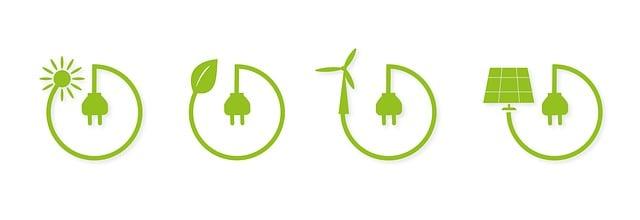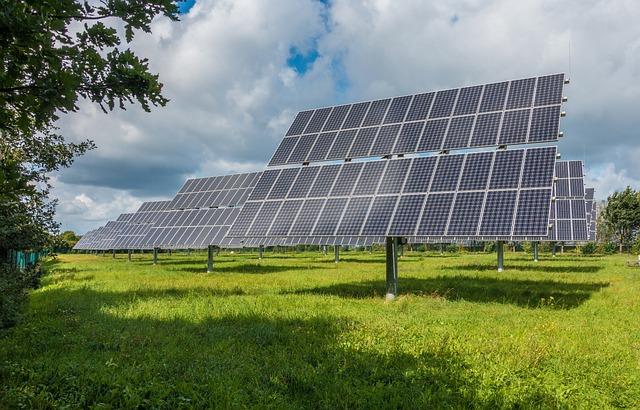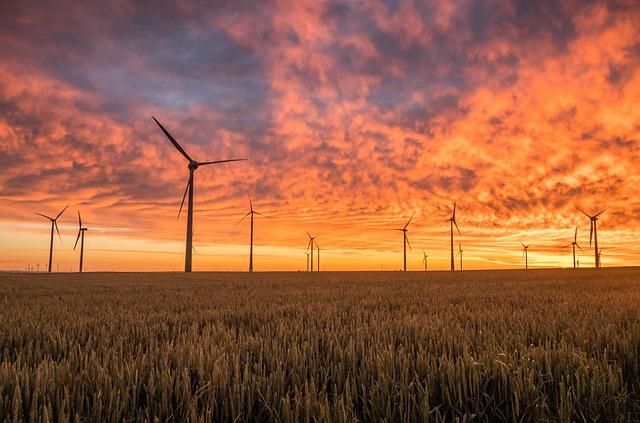- Introduction
- Advantages of Renewable Energy
- Types of Renewable Energy Sources
- Future Prospects of Renewable Energy
- Environmental Impact of Renewable Energy
- Conclusion
- FAQs
- References
Introduction
Renewable energy has been gaining significant traction in recent years as the world shifts towards more sustainable practices. This article explores the various aspects of renewable energy, including its advantages, different types, future prospects, and environmental impact.
Advantages of Renewable Energy
Renewable energy offers numerous benefits, such as reducing greenhouse gas emissions, promoting energy independence, creating jobs, and improving public health. By harnessing sources like solar, wind, and hydro power, countries can diversify their energy mix and decrease reliance on fossil fuels

(Image: Pixabay/@Alexandra_Koch)
Additionally, renewable energy systems are often more resilient to climate change and extreme weather events, making them a reliable option for long-term sustainability. The overall cost of renewable energy has also decreased over the years, making it more accessible to a wider range of consumers.
Investing in renewable energy can lead to economic growth and technological innovation, driving the transition towards a greener and more sustainable future for all.
Types of Renewable Energy Sources
There are several types of renewable energy sources, each with its own unique characteristics and applications. Solar power, derived from sunlight using photovoltaic panels or concentrated solar power systems, is one of the most widely used renewable energy sources

(Image: Pixabay/@mrganso)
Wind energy, generated by wind turbines, is another popular form of renewable energy, particularly in regions with consistent wind patterns. Hydroelectric power, obtained from flowing water in rivers or dams, is a reliable and established source of renewable energy.
Other renewable energy sources include geothermal energy, which harnesses heat from beneath the Earth's surface, and biomass energy, derived from organic materials like wood and crops. Each type of renewable energy has its own advantages and challenges, contributing to a diverse energy landscape.
Future Prospects of Renewable Energy
The future of renewable energy looks promising as advancements in technology and policy support the transition towards a cleaner energy system. Countries around the world are setting ambitious targets for renewable energy deployment, aiming to reduce carbon emissions and mitigate climate change impacts.
Emerging technologies like energy storage solutions and smart grids are enhancing the integration of renewable energy into existing power systems, enabling a more flexible and sustainable energy infrastructure. The growth of renewable energy markets is creating new opportunities for innovation and investment, driving further development in the sector

(Image: Pixabay/@Pexels)
As renewable energy becomes more mainstream, it has the potential to revolutionize the way we produce and consume energy, paving the way for a more environmentally friendly and sustainable future for generations to come.
Environmental Impact of Renewable Energy
Renewable energy offers significant environmental benefits compared to traditional fossil fuels. By reducing carbon emissions and air pollutants, renewable energy helps mitigate the impacts of climate change and improve air quality

(Image: Pixabay/@Myriams-Fotos)
However, it is essential to consider the potential environmental impacts of renewable energy projects, such as land use changes, wildlife disruption, and resource availability. Sustainable siting and development practices can help minimize these impacts and ensure that renewable energy projects coexist harmoniously with nature.
Overall, the transition to renewable energy is crucial for preserving the planet's ecosystems and combating the looming threats of climate change, making it a vital component of a sustainable energy future.
Conclusion
In conclusion, renewable energy represents a key solution to the challenges of climate change, energy security, and sustainable development. With its numerous advantages, diverse range of sources, promising future prospects, and positive environmental impact, renewable energy is shaping the way forward towards a cleaner and greener energy landscape.
FAQs
What are the main advantages of renewable energy?
Renewable energy offers benefits such as reducing carbon emissions, promoting energy independence, creating jobs, and improving public health.
Which are the most common types of renewable energy sources?
The most common types of renewable energy sources include solar power, wind energy, hydroelectric power, geothermal energy, and biomass energy.
How does renewable energy impact the environment?
Renewable energy helps reduce carbon emissions and air pollutants, mitigating climate change impacts and improving air quality. Sustainable practices are essential to minimize potential environmental impacts of renewable energy projects.

